 |
|
|
|
Issue 88 / Winter / August 2017
Hi [firstname]
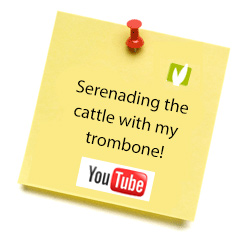 Welcome to the August edition of the SeedData newsletter.
Welcome to the August edition of the SeedData newsletter.
I'm writing this newsletter and guess what it's raining again!
It seems to have been non-stop lately but I suppose in the long run it's a good thing.
Sometimes when I write these newsletters it's difficult to find a topical subject to talk about.
That's certainly not the case in this issue as I have enough information for two newsletter this month!
In this month's SeedData newsletter we talk about some seed shortages, the latest information on fodder beet and some interesting developments in the HT brassica system, which I'm a huge fan of…so let's crack on.
Please browse these topics below:

Seed in short supply.
I normally don't like to talk about seed shortages as it sometimes creates panic buying and often without justification, given the vast array of seeds in our market today.
However, this coming season is going to be difficult for farmers looking at cocksfoot cultivars and Alto AR1.
The cocksfoot situation.
Over the last 2-3 years there has been a lot of interest in planting cocksfoot.
Most of this renewed interest is on the back of some very good new cocksfoot cultivars, consective dry summers in several regions, and the ever-changing land use we see happening in the country side.
At some stage during last season's cocksfoot seed growing season there must have been a frost event.
It would have been on or around when the seed crop was flowering.
This frost event has led to an across the board shortage in cocksfoot seed, as the germinations have fallen well below what is acceptable for sale. So it's in very short supply.
This situation will not be any better until the new harvest in 2018. I'd pick it will be short till at the least mid-March next year, so as you can see a big problem.
We are looking at importing a cultivar to help with this shortage. This cultivar has been well proven and used in New Zealand previously but even that may not be here until mid to the end of October.
As this story develops we will keep you posted. Until then, should you be thinking about your cocksfoot requirements, please feel free to contact us.
AR1 Alto perennial ryegrass.
Alto AR1 has since its release, proved to be a very popular diploid perennial ryegrass.
This is not surprising given that it comes out of the very successful Agriseeds plant breeding programme.
However, this coming spring through until mid-February, the AR1 version of this grass will be in tight supply.
But unlike the cocksfoot situation Agriseeds have a very suitable substitute to fill the gap as they have brought forward the release date of their new Governor AR1 perennial ryegrass.
Governor AR1 is described as follows:
- Combination of Bronsyn and Tolosa genetics
- Strong DM yield in all seasons
- Fine leaved and densely tillered to provide excellent persistence
- + 5 days early heading date
- Good rust resistance
- Available with AR1 endophyte.
So while Alto AR1 not being available is not an ideal situation, the good news is that it will give farmers a sneak preview at what looks to be another good Agriseeds perennial ryegrass cultivar!
Governor AR1 is in limited supply for the coming season and will be on a first in first served basis. We also note there still is good stocks of Alto AR37.
Website Link: Check out our Cocksfoot section of our Other Grasses page.
Website Link: Check out our Ryegrass page.
Contact Link: Contact Specialty Seeds if you have any other questions.
HT Brassicas go from strength to strength.
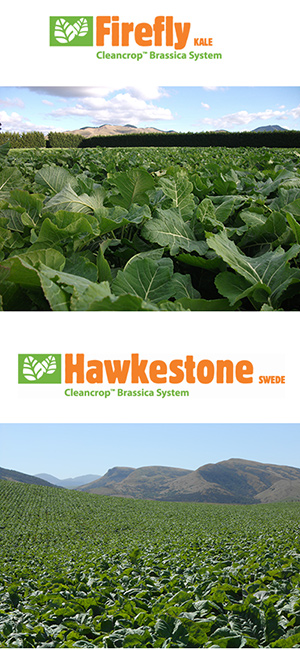 The HT Brassica system has been on the market for several years now and Specialty Seeds has been a supporter of this technology from day one.
The HT Brassica system has been on the market for several years now and Specialty Seeds has been a supporter of this technology from day one.
We like HT Brassica for a lot of reasons however the main reason is the excellent results we are seeing on our client's farms.
There are several good reasons why HT Brassicas are so successful.
- HT Brassicas are are using the latest cultivars available
- The weeds in these crops are controlled at sowing and therefore the crop gets the best possible start
- And we also like how simple this system is to implement on farm for our clients, sow, spray and forget.
This season, there are three significant changes to the HT Brassica system they are:
- There will be limited release of the new Firefly Kale. Firefly is an intermediate type kale, similar in performance to Regal.
- Hawkestone swede is going to be released in limited supply this season. Hawkestone is a yellow fleshed swede simular to Clutha Gold swedes.
- Hawkestone swede will be available with the normal HT Brassica seed treatment and in a pelleted form. Some growers are taking a leaf out of the fodder beet book and precision drilling their swede crop.
The recommended sow rate is 90,000 seeds per hectare and it is packed into a bucket containing that number of seeds.
Note: There will be some pelleted Clutha Gold swedes available as well this season. Clutha Gold is not in the HT Brassica system and I'll talked more about Clutha Gold in new month's newsletter.
HT Brassica trial results.
I was recently shown the latest results of yield trial work that has been conducted on the range of HT brassicas and it makes for impressive reading.
These trials started in 2013 and were conducted over several sites throughout New Zealand.
From these trial results, we see when compared to conventional brassica products in the HT Brassica systems are similar or higher in dry matter yield production.
It's great to see this yield work as it backs up the on-farm observations with our clients who use this great system.
Should you wish to see the full results of these trials or if you would like more information on the HT brassica range please contact us.
Contact Link: Contact Specialty Seeds if you have any questions.
Trials prove big savings in Fodder beet costs are possible.
Recently the Minstry for Primary Industries (MPI) and the Sustainable Farming Fund (and others) held a series of meetings to present the preliminary findings of fertiliser trial work conducted over their trial sites throughout the South Island.
The four meetings were well attended and hopefully some of you made it to them.
Initial trials have assessed productivity gains for rates of nitrogen and potassium by analysing performance (biomass and crop health) and assessing the marginal returns to growers.
Data is presented in interim only, and will be completed with an end-of-season harvest data and subsequent data analysis.
From the early day trials, we see an opportunity for farmers to make big savings in their fertiliser input within their fodder beet crops this coming season.
Nitrogen results showed:
- that timing of application had very little effect on N uptake and 100 kgs of N appeared to be the most economical
- Boron had minimal effect on the final yield
- And the use of high rates of potassium doesn't necessarily lead to higher dry matter yields.
I have copies of all four of the meetings and would be happy to forward these to you for further inspection. Please contact us for these details.
On the face of it, we should be sitting down with our fertiliser advisors and carefully planning how much fertiliser we need apply to our crops... save some money!
A big thanks to the following companies / organisations who are supporting this valuable research.
Contact Link: Contact Specialty Seeds if you have any further questions.
The NZ Fodder Beet Company Ltd website is live.
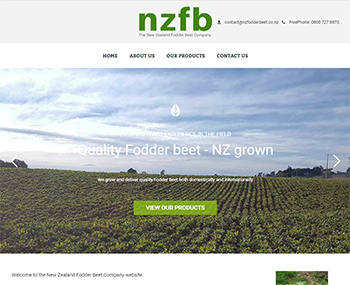
Stop the Press! We have some hot news!
We have just had notification that the company we purchase a lot of our fodder beet seed from, has just completed and put on line it's new web site.
www.nzfodderbeet.co.nz
The New Zealand Fodder Beet Company (NZFB) is a New Zealand based company, formed to supply and support, New Zealand farmers with high producing fodder beet cultivars.
While this web site will grow over the next few months it already gives you a great insight to the cultivars it has available for this season.
Go check it out my clicking on the link and watching this space for further developments.
Contact Link: Contact Specialty Seeds if you have any further questions.
Finchy's photo of the month.
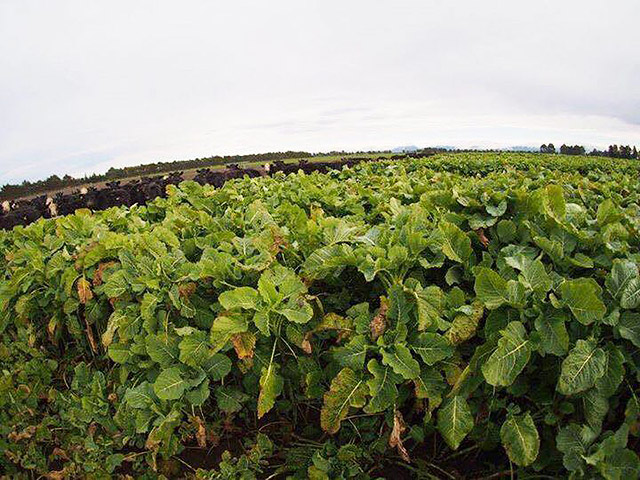
I received a phone call from one of our clients Dave Dunn recently to come out and have a look at his paddock of Corka Kale and Aparima Swedes.
Over the last couple of years Dave has been experimenting with the sowing rates for both Kale and Swedes and he thinks hes got it right.
Dave direct drills 6 rows of Corka kale and 5 rows of Apirima swedes and this year’s crop has been estimated at between 12 and 14 tonnes per hectare.
So good it won the local winter green feed competition!
|
Back to top

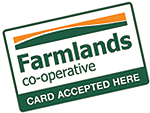
As always, we hope this issue has been of some value to you. If you have a comment on this newsletter or anything on our website, please give us a call on our Freephone: 0800 727 8873, send us an email at: mail@specseed.co.nz.
Kind Regards

Stephen Finch & David Percival
Specialty Seeds - New Zealand
|
|
|
|
 |
|
|

|
If you are having trouble viewing this email, .
If you would like to be removed from this newsletter please click here to
|
